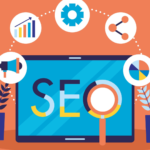Trends Shaping the Future of Business Consulting
The business consulting industry is evolving rapidly. Changes in technology, client expectations, and market dynamics are transforming the way consultants operate. Businesses seeking advice must adapt to these trends to stay competitive, while consulting firms must innovate to remain relevant. Understanding these trends helps companies and consultants alike navigate the future effectively.
Emphasis on Data-Driven Consulting
Data-driven decision-making is becoming a central focus in consulting. Firms increasingly rely on analytics tools, big data, and predictive modeling to guide recommendations.
By analyzing customer behavior, financial metrics, and market trends, consultants provide insights that are precise and actionable. This shift ensures that strategies are based on evidence rather than intuition, helping businesses make informed decisions and minimize risk.
Integration of Artificial Intelligence and Automation
Artificial intelligence (AI) and automation are transforming consulting practices. AI tools help analyze large datasets, identify patterns, and even predict outcomes. Automation streamlines routine tasks such as report generation, workflow management, and data entry.
These technologies allow consultants to focus on strategic planning and client engagement while improving efficiency. Clients benefit from faster, more accurate insights and more innovative solutions.
Growth of Remote and Virtual Consulting
Remote consulting has gained momentum, especially after recent global events. Video conferencing, cloud-based collaboration tools, and digital project management platforms allow consultants to work with clients anywhere in the world.
Remote consulting reduces costs, increases flexibility, and enables access to a broader talent pool. Businesses can now hire specialized consultants without geographical limitations, expanding opportunities for both firms and clients.
Focus on Specialized Expertise
Clients increasingly seek consultants with niche expertise rather than generalists. Industries such as technology, healthcare, and sustainability require consultants who understand specific market challenges, regulations, and trends.
Specialized knowledge allows consultants to provide tailored solutions that deliver greater value. This trend encourages firms to invest in professional development and knowledge sharing to maintain a competitive edge.
Demand for Agile and Flexible Solutions
The fast-paced business environment demands agility. Companies no longer want one-size-fits-all strategies; they need solutions that can adapt to changing circumstances.
Consultants are increasingly adopting agile methodologies, enabling iterative planning, rapid prototyping, and continuous improvement. This approach allows businesses to respond quickly to market shifts and implement strategies that evolve over time.
Emphasis on Sustainability and Social Responsibility
Sustainability and corporate social responsibility (CSR) are becoming critical considerations in consulting. Businesses now expect consultants to provide strategies that align with environmental, social, and governance (ESG) goals.
Consultants help companies implement sustainable practices, measure impact, and communicate their CSR initiatives effectively. This trend reflects the growing importance of ethical business practices and long-term value creation.
Collaboration and Co-Creation with Clients
Modern consulting emphasizes collaboration rather than simply delivering recommendations. Consultants work closely with client teams to co-create solutions, ensuring that strategies are practical and aligned with organizational culture.
This collaborative approach enhances implementation, improves employee buy-in, and fosters a sense of ownership, increasing the likelihood of success.

Use of Advanced Technology for Client Engagement
Consulting firms are leveraging technology to enhance client engagement. Interactive dashboards, virtual reality simulations, and mobile reporting tools provide clients with real-time insights and immersive experiences.
These tools make data more accessible and actionable, helping clients visualize outcomes and understand the impact of proposed strategies.
Conclusion
The future of business consulting is shaped by data-driven strategies, AI and automation, remote collaboration, specialized expertise, agile methodologies, sustainability, and enhanced client engagement.
Consultants who embrace these trends can provide greater value, improve efficiency, and foster long-term partnerships. Businesses that understand and adapt to these changes will benefit from innovative solutions and strategic guidance that drives sustainable growth.
The consulting industry is evolving, and staying ahead requires both consultants and businesses to be proactive, flexible, and technology-savvy. By leveraging these trends, consulting will continue to transform how organizations achieve success in a dynamic global market.



